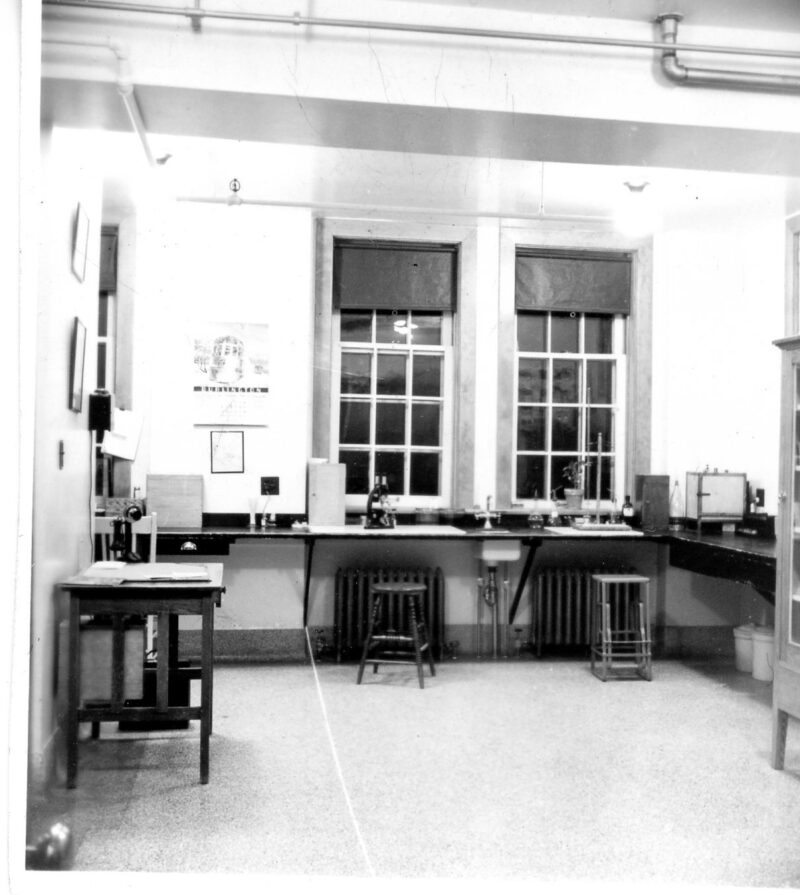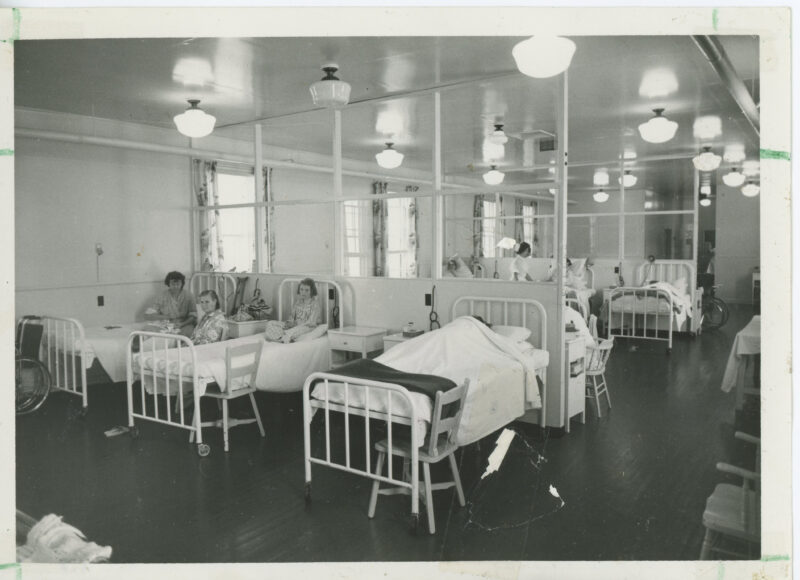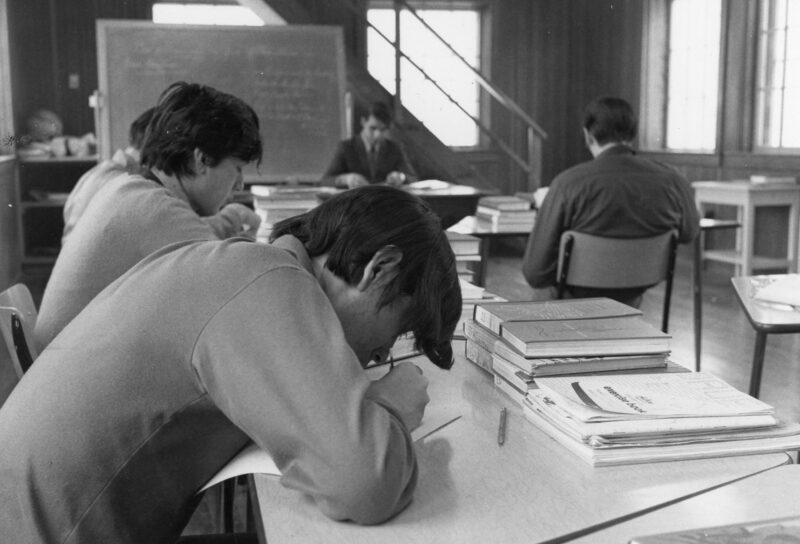Ninette (Manitoba) Sanatorium
The Ninette (or Manitoba) Sanatorium was built in the town of Ninette, on the shores of Pelican Lake, in 1909. Consisting of many buildings built specifically to serve as a sanatorium, the lake view, treed landscape, and stone buildings all contributed to a picturesque setting. This setting was purposeful, as TB treatment up until the Second World War consisted primarily of rest, good food, and fresh air. A large veranda was built on the front of the sanatorium to accommodate the patients in their beds while they took in fresh air. Surgical procedures were incorporated into treatment plans in the following decades.

Lab, Ninette Sanatorium, Manitoba Lung Association, MBLung-15-04-001
Ninette Sanatorium is the largest and longest-operating sanatorium in the province. It opened with provisions for sixty patients in 1909-1910, but expanded rapidly; in just over a decade, the hospital could accommodate 280 patients.
It is not clear when Indigenous patients began being treated at Ninette. The hospital admitted primarily non-Indigenous patients until hospitalization rates among those groups began to decline after the Second World War, leaving open beds that needed to be filled. First Nations, Métis, and Inuit men, women, and children, including 80 Inuit who were sent from Eskimo Point in the Northwest Territories in 1963, soon filled a disproportionate amount of the beds. The treatment of First Nations and Inuit patients was paid for by the federal government, while the treatment of non-Indigenous and Métis patients was paid for by the province.

Women's Ward, Ninette Sanatorium, 1962, Manitoba Lung Association, MBLung 11-04-001
The Ninette Sanatorium remained in operation until 1972, when TB treatment was wholly transferred to the Central TB Clinic in Winnipeg.

Classroom, 'Pembina House A' at Ninette Sanatorium, Manitoba Lung Association, MBLung-10-02-001.
In 1965, a Pavilion at Ninette was converted into a “Social Orientation and Work Condition Unit” called “Pembina House” funded by the Province of Manitoba and supported by a federal-provincial Canadian vocational training agreement program. Pembina House used some of the same facilities as Ninette including the dining room, but students at Pembina House did not have tuberculosis. Rather, the goal of Pembina House was education and integration, and activities included “work conditioning,” “social and academic upgrading,” and employment guidance. Pembina House closed in 1972, at which point Ninette also closed. The entire grounds was then transformed to the Pelican Lake Training Centre,” which operated from 1973 to 2000 and provided living accommodations and training to people with intellectual disabilities until it closed in 2000. In the early 2000s, the site was operated as a Christian retreat and conference center; the buildings are now privately owned.

